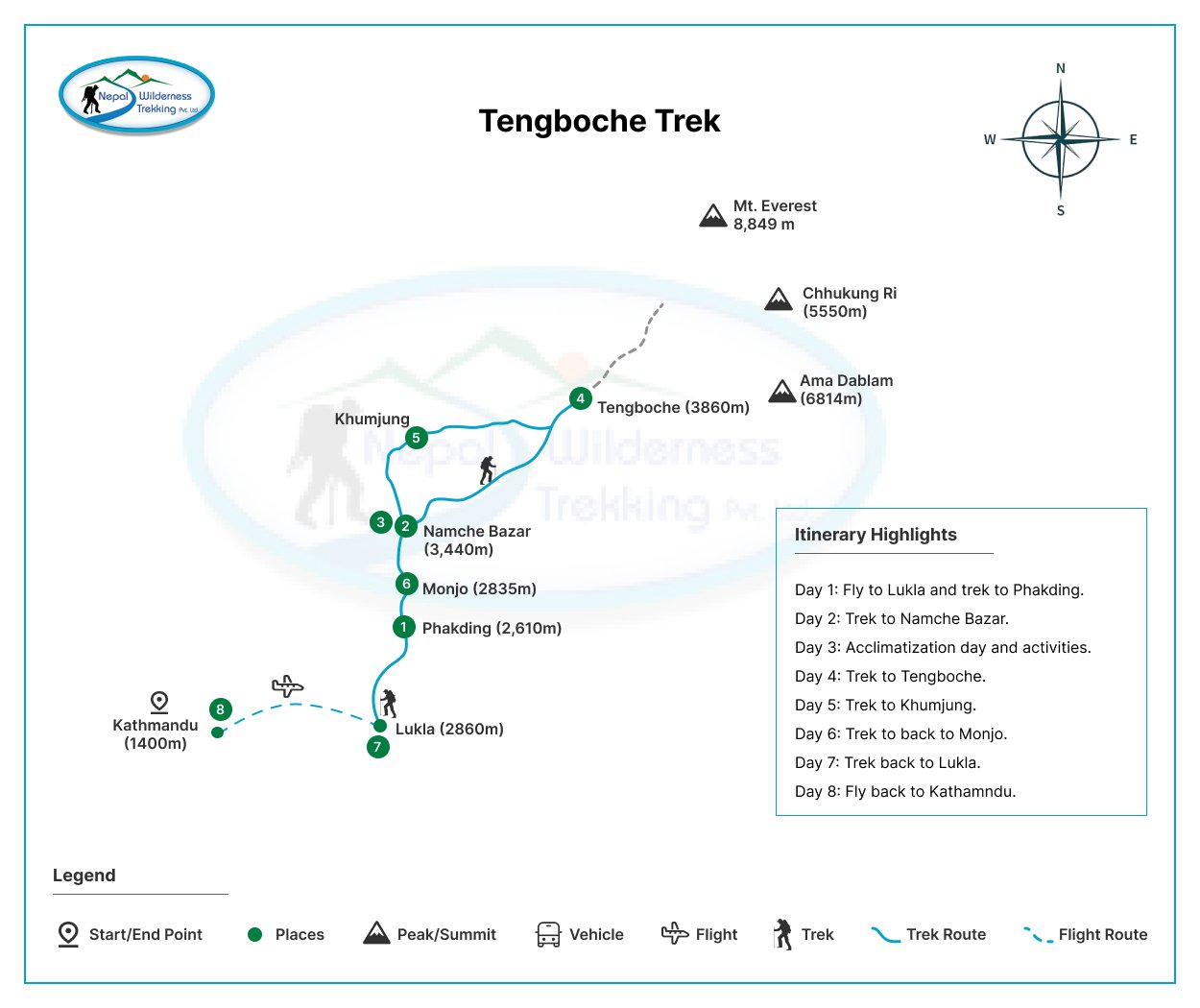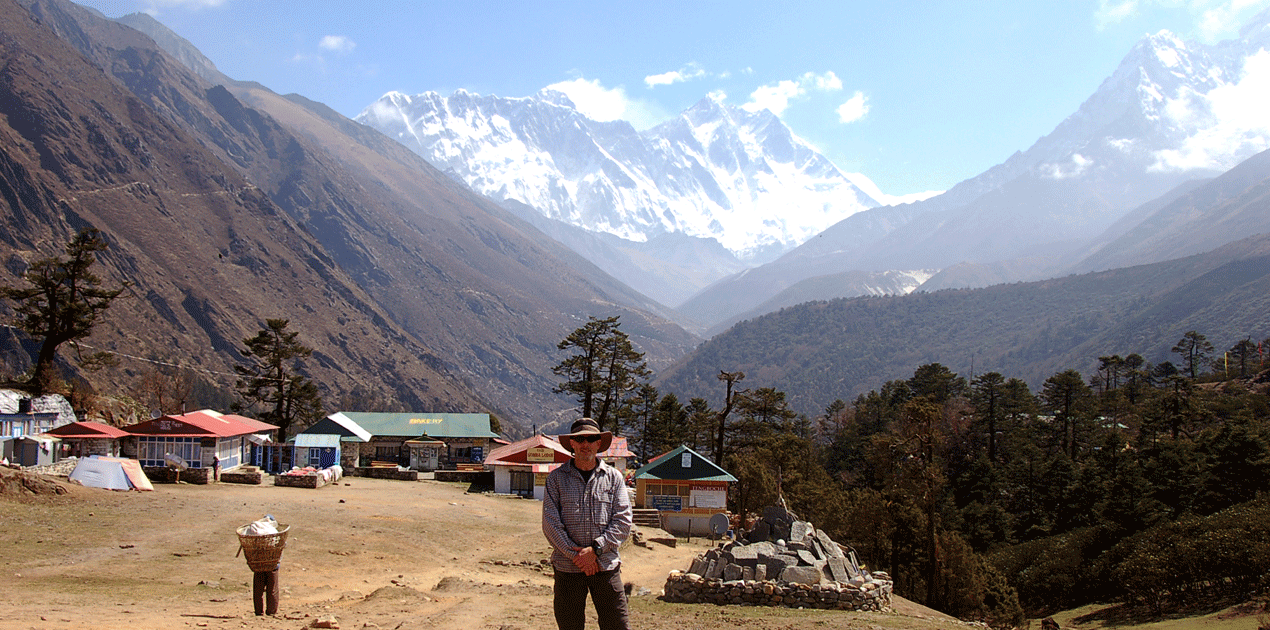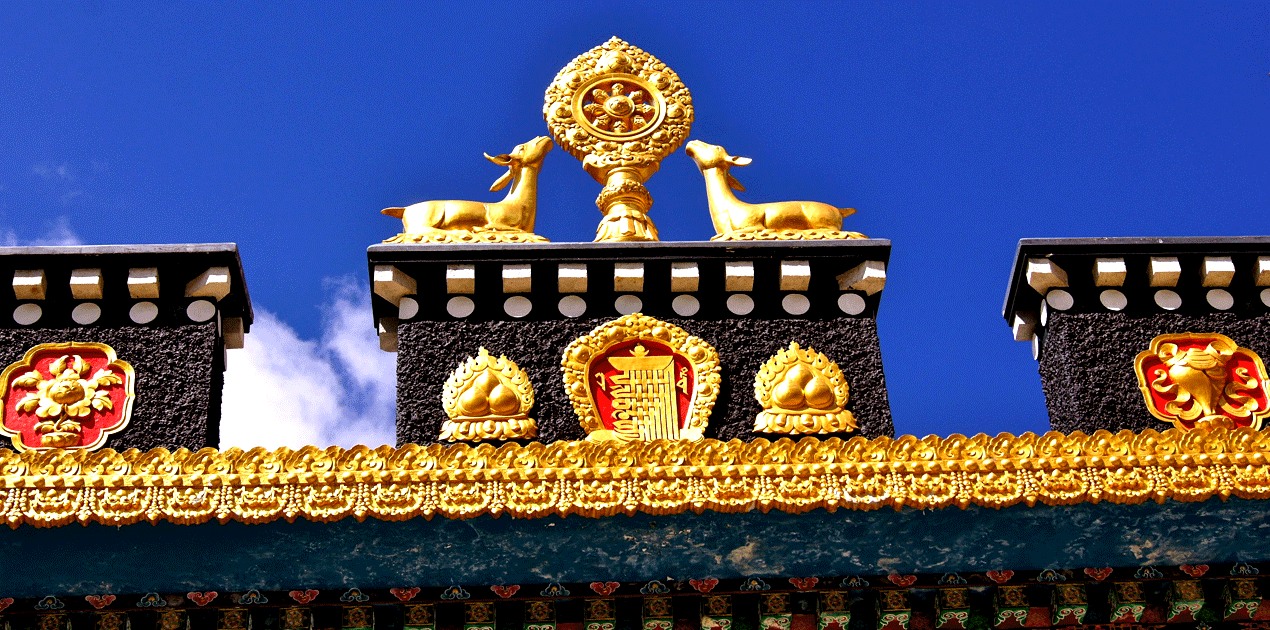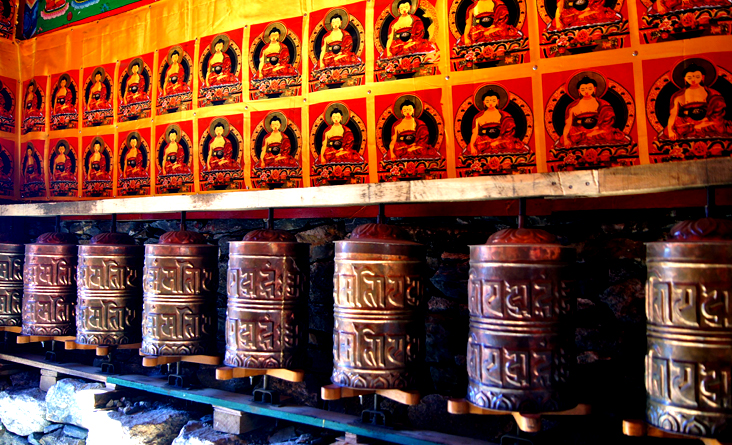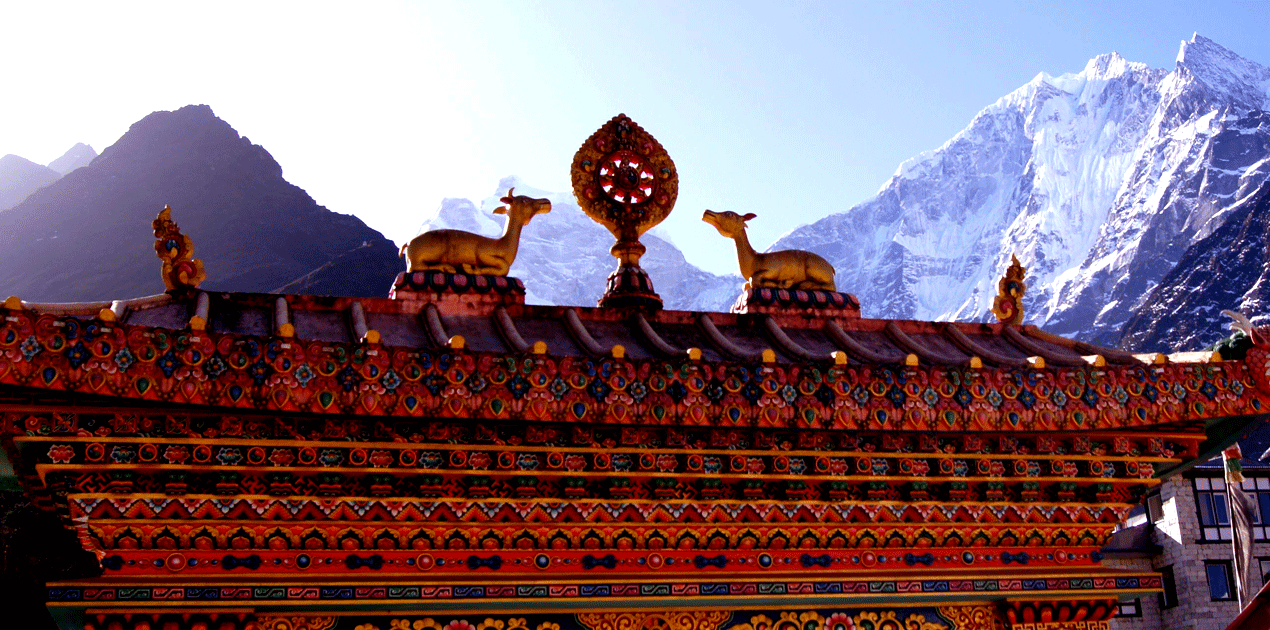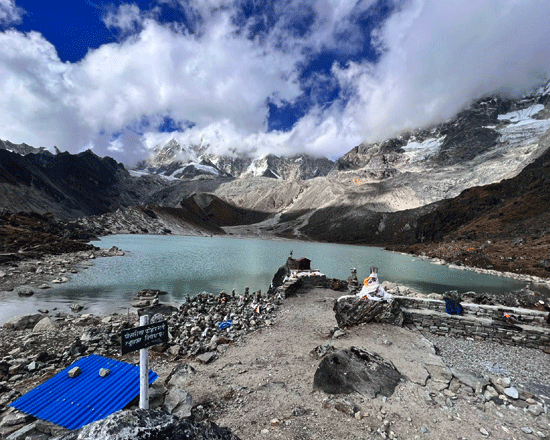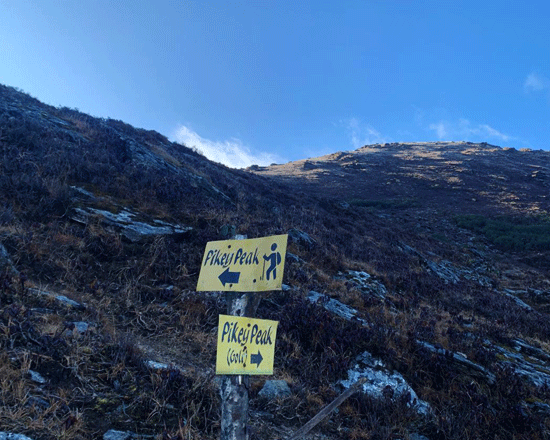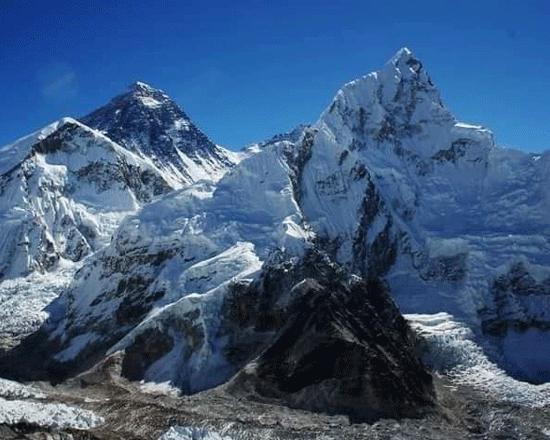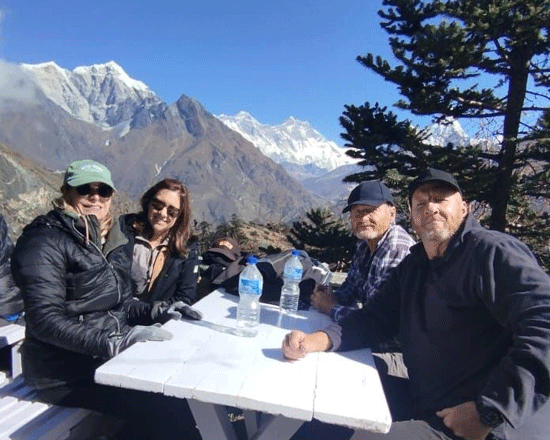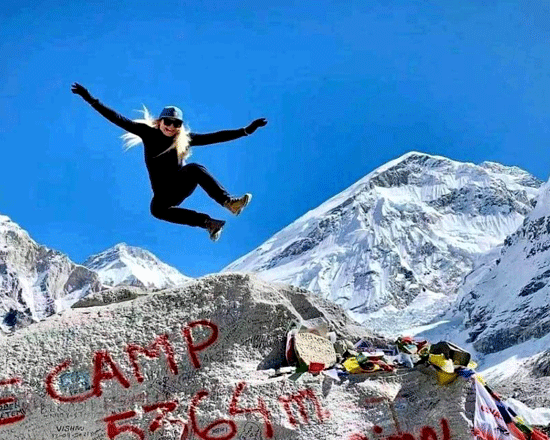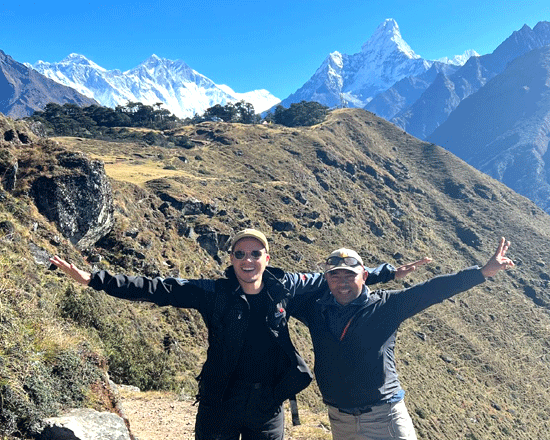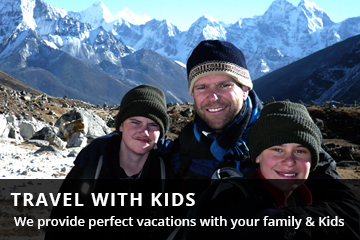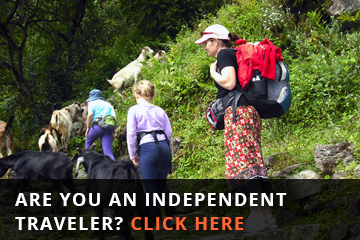Tengboche Trek
Tengboche Trek
Everest RegionTrip Facts
These treks are suitable for any walker looking for something a little more challenging and energetic. They are a combination of some longer and shorter walks and hill-walking experience is desirable. The duration is usually from 10 to 15 days. Following the up and down terrain of Nepal and walking to higher elevations contrasts these treks to those in the easy classification. However, you will be rewarded for your efforts with spectacular close-up views of glaciers and of the high Himalayas. Although the terrain is not difficult, some vigorous hiking experience is useful. There may be up to 6 hours a day on the trail and the elevation rises and falls from 800m/ 2624ft to 4000m/13210ft above sea level.
Mode of Travel : Land100%
Overview
Tengboche Monastery Trek – 8 Days Itinerary
The Tengboche Monastery Trek is one of the most scenic and culturally rich short treks in the Everest region. Ideal for those who wish to witness the majesty of the Himalayas without trekking to Everest Base Camp, this 8-day adventure offers stunning mountain views, immersive Sherpa culture, and the spiritual ambiance of Tengboche Gompa—the largest and most revered monastery in the Khumbu region.
Overview of the Tengboche Monastery Trek
The Tengboche Monastery Trek is a moderate-level journey that begins with a thrilling flight to Lukla and continues along the Dudh Koshi River, passing through picturesque Sherpa villages like Phakding and Namche Bazaar. From Namche, the trail ascends through lush rhododendron forests and panoramic ridgelines to reach the spiritual heart of the Khumbu: Tengboche Monastery (3,860m).
From Tengboche, trekkers enjoy jaw-dropping views of Mt. Everest, Ama Dablam, Lhotse, Thamserku, and Taboche Peak. The region’s serene natural beauty, combined with its spiritual significance, makes the Tengboche Monastery Trek one of the most rewarding short treks in Nepal.
Highlights of the Tengboche Monastery Trek
- Panoramic views of Mt. Everest, Lhotse, Nuptse, Ama Dablam, and more.
- Exploration of the sacred Tengboche Monastery—spiritual hub of the Khumbu.
- Opportunity to witness the Mani Rimdu Festival (October–November).
- Sherpa hospitality and rich Buddhist culture.
- Lush forests, blooming rhododendrons (in spring), and wildlife sightings.
- Ideal photography locations with dramatic Himalayan backdrops.
Mani Rimdu Festival at Tengboche Monastery
The Mani Rimdu Festival is a vibrant and spiritually powerful event held annually at Tengboche Monastery in October or November (based on the Tibetan lunar calendar). This three-day Buddhist festival celebrates the victory of Buddhism over the ancient Bon religion and includes:
- Sacred mask dances by resident monks.
- Rituals and blessings.
- Colorful ceremonies are open to trekkers and locals alike.
The festival is a spectacular blend of spirituality and culture, drawing visitors from around the world. Planning your Tengboche Monastery Trek during the Mani Rimdu Festival offers a rare opportunity to witness this centuries-old celebration firsthand.
Best Time for Tengboche Monastery Trek
- Spring (March to May): Rhododendrons in full bloom, clear skies, and moderate temperatures.
- Autumn (September to November): Stable weather, crystal-clear mountain views, and the Mani Rimdu Festival.
- Winter (December): Fewer crowds and great views, though colder.
- Summer/Monsoon (June to August): Not ideal due to heavy rainfall and slippery trails.
Tengboche Monastery: A Spiritual Landmark
Founded in 1916, Tengboche Monastery is the spiritual heart of the Khumbu region and the largest monastery along the Everest trail. Though it has been destroyed and rebuilt twice due to earthquakes and fires, it remains a strong symbol of Sherpa identity and faith.
Monks at Tengboche follow the Nyingma lineage of Tibetan Buddhism and conduct daily rituals in the main prayer hall adorned with murals of Buddhist deities. The peaceful environment, flanked by the Himalayas, offers trekkers a moment of reflection and spiritual tranquility.
Photography Paradise: Tengboche Viewpoints
The Tengboche Monastery Trek is a dream for mountain photographers. Along with Gokyo Ri and Kala Patthar, Tengboche is one of the top three Everest region photo spots. Capture perfect frames of:
- Mt. Everest with the green Dudh Koshi valley below.
- Glorious sunrise and sunset over Ama Dablam.
- Monastery against snow-capped Himalayan backdrops.
Natural Beauty and Wildlife
Spring is particularly magical, with rhododendrons blooming and forests turning green. The Tengboche trail is also a haven for Himalayan wildlife, such as:
- Himalayan Thar
- Musk Deer (National Animal of Nepal)
- Colorful birds like the Danphe (Impeyan Monal – National Bird of Nepal)
Lukla to Tengboche Trek Details
The Lukla to Tengboche Trek is a 5–6 day walk, with a highlight overnight stay at Tengboche (3,860m). The segment from Namche Bazaar to Tengboche is approximately 11 km (6.8 miles) and takes about 5–6 hours. This scenic section ascends through pine forests and ridgelines with mesmerizing views.
8-Day Tengboche Monastery Trek Itinerary
Day 01: Fly from Kathmandu to Lukla (2,860m), trek to Phakding (2,610m)
Day 02: Trek to Namche Bazaar (3,440m)
Day 03: Acclimatization day at Namche – explore viewpoints or Khumjung
Day 04: Trek to Tengboche (3,860m)
Day 05: Morning exploration of the monastery and return to Namche
Day 06: Trek to Phakding
Day 07: Trek to Lukla
Day 08: Fly back to Kathmandu
Final Thoughts: Whether you’re a cultural traveler, mountain photographer, or spiritual seeker, the Tengboche Monastery Trek offers a short yet meaningful journey through the heart of the Everest region. With its rich Sherpa culture, stunning landscapes, and the spiritual atmosphere of Tengboche Gompa—especially during the Mani Rimdu Festival—this trek is truly a Himalayan gem.
Detail Itinerary
- Day 01: Fly to Lukla early in the morning (2827 meters. 35 minutes) and trek to Phakding (2640 meters. 3 hours walking) stay overnight at Lodge
- Day 02: Trek to Namche Bazaar (3440 meters. 6/7 hours walking) stay overnight at Lodge
- Day 03: Explore Everest View Hotel to see Mount Everest and visit Khumjung Sherpa Village
- Day 04: Trek to Tengboche (3867m) It takes between 5 and seven hr 6/7 hours walking) evening time visit the monastery at Puja time, stay overnight at Lodge
- Day 05: Trek to Khumjung (3790m) 4 to 5 hr. We pass through the forest, small settlement villages and make small ups and down to reach Khumjung which is a beautiful Sherpa village which is located inside the Sagarmatha National Park
- Day 06: Trek Back to Monjo (2835m) 6/7 hours walking) stay overnight at Lodge
- Day 07: Trek back to Lukla (4 ½ hours walking) stay overnight at Lodge
- Day 08: Fly back to Kathmandu early in the morning (35 minutes)
Cost Included
- Domestic flight tickets from Kathmandu to Lukla and Lukla to Kathmandu
- Italian, Chinese, Nepali, Indian, and other European foods are available three times a day (breakfast, lunch, and dinner).
- Accommodation in tea houses according to the itinerary
- Kitbag for storing your belongings
- Sleeping bag for a comfortable night's sleep on a trek in minus-25 degrees
- Everest National Park Entrance Trekking Permit
- Khumbu Pasang Lhamu Rural Municipality Entrance Permit
- Experienced English-speaking, Government licensed holder trekking guide
- Experienced Sherpa helpers (porters) 1 porter for every 2 pax
- Guide, and Porter meals, accommodation, salary, and insurance
- Necessary paper works, all government, and local taxes
- A certificate of appreciation from Nepal wilderness trekking after a successful trek
Cost Excluded
- Airfare for international flights
- Upon arrival at Tribhuwan International Airport, Nepal entry visa fees vary by duration (15 days - $25-30, 30 days
- Accommodations and meals in Kathmandu before and after our journey
- Personal equipment for high and cold temperatures
- Emergency high-altitude rescue and evacuation covered by travel insurance
- All beverages, Soft and caffeinated table drinks such as coke, beer,
- Drinking water/mineral water, Dessert, etc. Hot shower, laundry
- Tip for guide and porter
- Excluded are all costs and expenses not listed under "cost includes"
- Inclusion of costs or delays beyond the control of the management, such as landslides, weather conditions, itinerary modifications due to safety concerns, illness, changes in government policies, strikes, etc.
Trip Map
